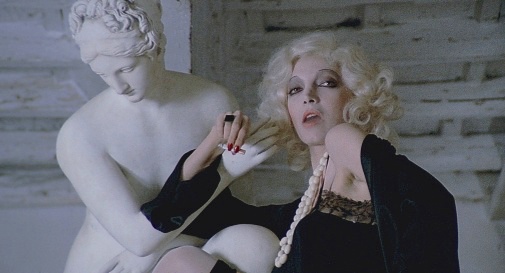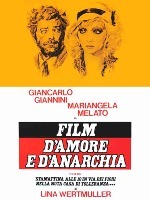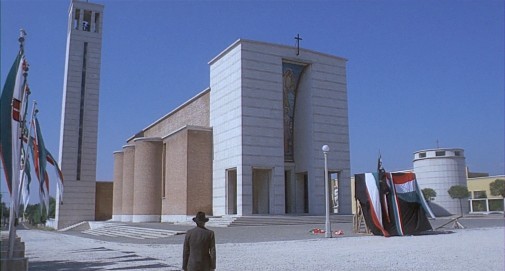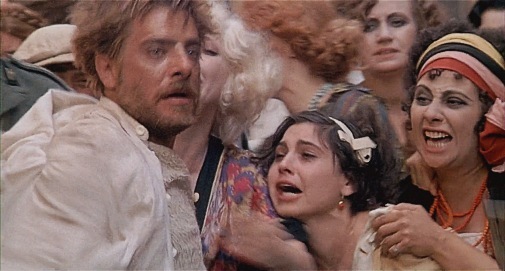The Governors Awards (Honorary Oscars) will be held on October 27th, 2019 with director Lina Wertmüller, actress Geena Davis, director David Lynch, and actor Wes Studi celebrated. We'll be discussing each of them before then.

by Cláudio Alves
Lina Wertmüller's films always feature great faces. They're not classically beautiful, but rather interesting to look at, like the visages sculpted by shadow in Caravaggio's paintings. In Love & Anarchy, Giancarlo Giannini is a storm of freckles, his green eyes lighthouses guiding us through the waves into his soul. Contrastingly, Mariangela Melato is a spectacle of powdered pallor, a vampiric Jean Harlow or perhaps a tarted-up marble statue, gorgeous and obscene in equal measure...
 The main setting of Love & Anarchy is also full of beauty and perversion, smelling like flowers and trash. It's a brothel in Rome during the 1930s when Mussolini was in power and fascism dominated Italian life. Melato is Salome, a biblically named prostitute whose anarchic ideals burn bright, to the point she offers shelter and guidance to an assassin that plans on shooting Il Duce. Giannini is Tunin, the wannabee murderer, a peasant who wants to avenge fallen friends and change the world. He falls for one of Salome's colleagues and his story both starts and ends with death.
The main setting of Love & Anarchy is also full of beauty and perversion, smelling like flowers and trash. It's a brothel in Rome during the 1930s when Mussolini was in power and fascism dominated Italian life. Melato is Salome, a biblically named prostitute whose anarchic ideals burn bright, to the point she offers shelter and guidance to an assassin that plans on shooting Il Duce. Giannini is Tunin, the wannabee murderer, a peasant who wants to avenge fallen friends and change the world. He falls for one of Salome's colleagues and his story both starts and ends with death.
When shot in close-up, these people's faces fill the screen with all their fascinating intensity, Wertmüller's muses thus transcend the usual idea of a movie star. They're not luminous creatures of glamour, they are primordial entities, like the human id personified in all its chaos and marvel. After all, in this director's films, chaos is de rigueur and nobody whispers when they can shout. Why simply look at something, when you can stare bug-eyed or seduce with half-lidded insinuations?
It's not idealized perfection this director's after and not naturalism either. Like its title suggests, Love & Anarchy is anarchic cinema, chaos turned into film, as passionate as it's disorganized. The structure of the narrative jumps between long inaction and sudden bursts of activity, the character's motivations are both mysterious and clear, often at the same time. There's blood and sex, tearful song and violent murder, there's romance and comedy too. Some might call it aimless and melodramatic, but melodrama is the best dramaturgical translation of the human soul. At least, it is when Wertmüller's sitting on the director's chair.

For a film whose story could be easily characterized as funereal, if not downright tragic, Love & Anarchy is full of life and lustful joy such is the power of melodrama. These celebratory tonalities are a form of rebellion against the forces of oppression that destroy Wertmüller's beloved characters. In the face of death, life is rebellion. In the face of fascist order, anarchy and messiness are what's needed to live rather than just survive. This is nowhere more evident than in the contrast between the close-ups of the director's muses and the carefully composed shots of the regime's architecture.
The actor's faces are chaotic humanity at its best, they overflow with loud emotion and weird cosmetic quirks. The long shots of white rectilinear buildings and carefully constructed town squares are inhuman in comparison. Love and anarchy are synonyms in Wertmüller's cinematic language and they exist in opposition to that which is inherently against humanity – the rule of dictatorial order.
